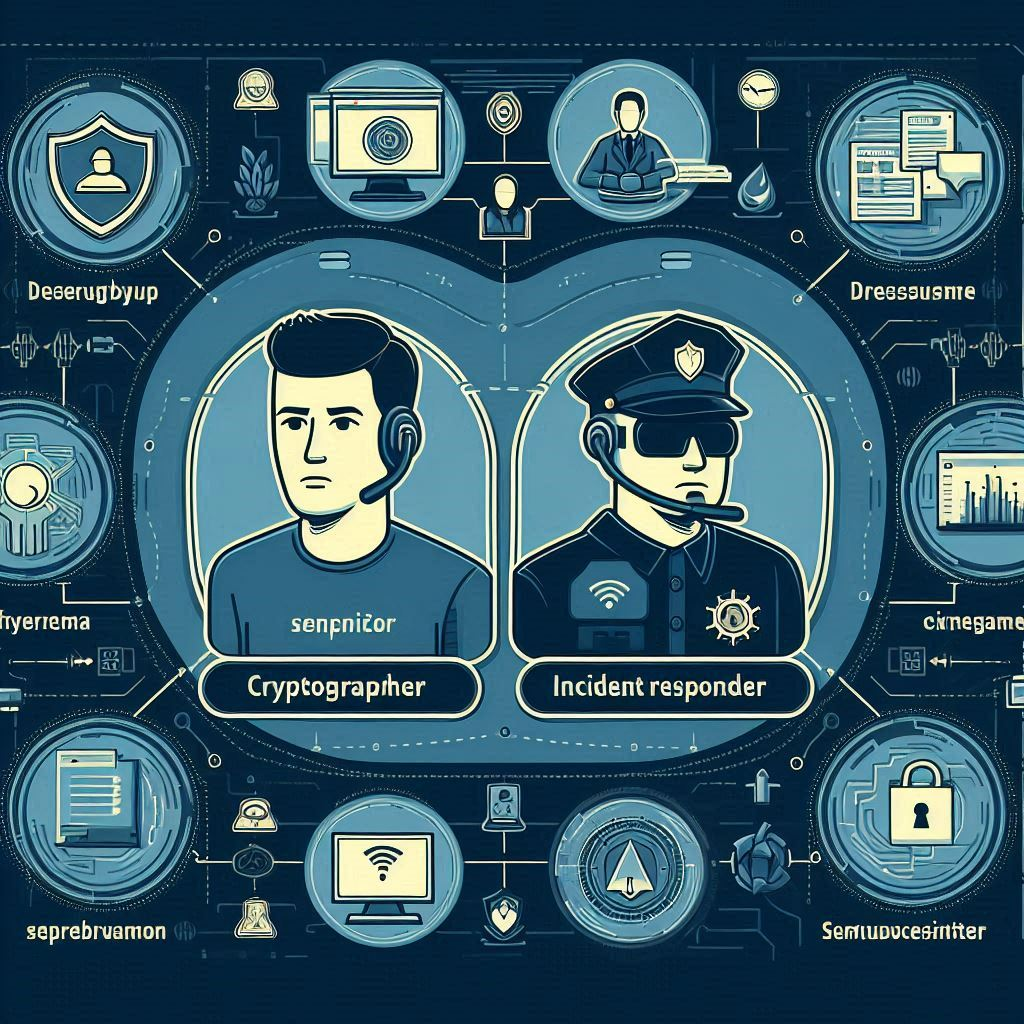For the last few columns I have been talking about various Cyber Security job opportunities. In last week’s column, I spoke about the top two cybersecurity job openings among the top ten entry-level jobs in the first column, Cybersecurity Analyst and Cybersecurity Specialist. In today’s column, I am going to talk about two more cyber security job opportunities, Cyber Incident Responder and Cryptographer, mainly about those job features/responsibilities, skills, qualifications, certifications, salary, job titles and career progressions.
Cyber Incident Responder Job Opportunities:-
A cyber incident responder protects and improves an organization’s security by preventing and mitigating cyber security threats and information theft. Their duties include monitoring, evaluating, testing and analyzing the organization’s system, equipment and tools to identify and remediate potential cyber security breaches. They prepare cyber security plans, policies and training material needed to effectively respond to cyber threats. They use network forensics, reverse engineering and hacking skills to assess and respond to threats through hacking (intrusion) detection, cyber security audits and risk analysis. They generate reports on cyber incidents and actions taken for management and law enforcement agencies at predetermined intervals.
For this post they should preferably have a degree/diploma in computer related subject, mainly they should have knowledge of various operating system, networking and system administration, security tool/tools, digital forensics, hacking, programming and scripting skills. In addition, they need non-technical skills such as analytical thinking, problem solving, communication, team spirit and keen vision to excel. Industry certifications like CERT-Certified Computer Security Incident Handler (CERT-CSIH), Certified Computer Examiner (CCE), Certified Computer Forensics Examiner and Certified Information Systems Security Professional (CISSP) can help you get a better job/salary. For this job you can expect a salary of 3-21 lacs in the first year. Here you can start as Cyber Incident Responder to Senior/Lead Incident Responder, Incident Responder Specialist/Manager/Vice President.
Cyber Cryptographer Job Opportunities :-
Cryptography is the science of securing information by storing and transmitting data in a specific format so that only those for whom it is intended can read and process it. Cryptographers typically work in finance, tech, or government organizations handling important information. Cryptographer is a data security professional with considerable expertise in encryption and are critical members of the information security defense team. Cryptographers protect an organization’s important sensitive information from unauthorized hacking, alteration, copying, or deletion, and design stronger security systems by detecting weaknesses in an organization’s security systems and algorithms. Also they devise new encryption/decryption algorithms/techniques for organizations to protect information using their mathematics, statistics and statistics knowledge.
For this post they should preferably have Degree/Diploma in Mathematics/Computer/Statistics related subject, mainly they should have knowledge of various Operating System, Linear Algebra, Cryptography, Security Tool/Tools, Programming and Scripting skills. In addition to this they need to have non-technical skills such as analytical thinking, problem solving, communication, team spirit and attention to detail. Industry certifications like Certified Encryption Specialist (ECES), CompTIA Security + and Certified Information Systems Security Professional (CISSP) can help you get a better job/salary. You can expect a salary of 6-15 lakhs in the first year for this job. Here you can start as Cyber Cryptographer and move up to Senior/Lead Cryptographer, Cryptographic Analyst/Specialist/Consultant/Researcher/Scientist post.
Cryptographer vs. Cryptologist
A cryptographer focuses on creating encryption methods and algorithms. In this role, you’re the builder, ensuring information can be securely scrambled and unscrambled. A cryptologist studies both encryption (cryptography) and its counterpart, decryption (cryptanalysis). In this role, you understand how to build codes, but also how to potentially break them. You analyze existing methods and search for vulnerabilities. Think of it this way: A cryptographer designs a high-security lock while a cryptologist studies the lock’s design (cryptography) and tries to find ways to pick it (cryptanalysis).
Where can we learn these cyber security skills?
You can learn the above mentioned technical and non-technical skills in either offline or online mode. You can learn in offline mode in colleges (Karnataka and India) and also in online mode as part of diploma, degree, post graduation or certification course, such courses are also available to you for free (YouTube, udemy, simplilearn etc.) but to prove your knowledge learned to prospective employers, you may need to do certifications for your preferred job mentioned above.

